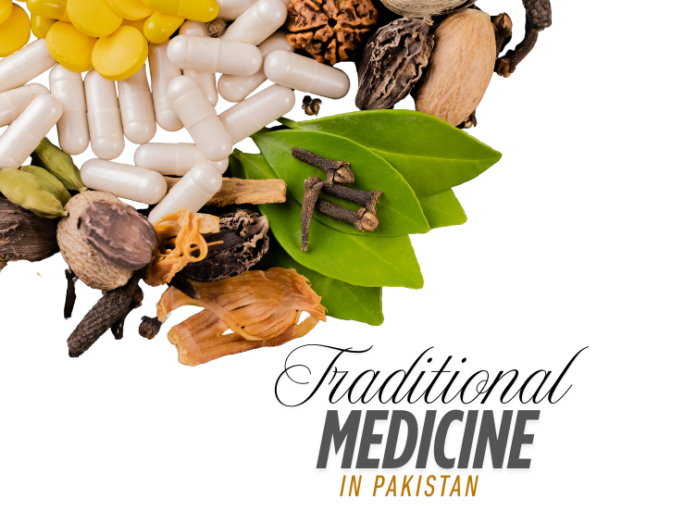Traditional medicine has been central to human societies for centuries, addressing physical, mental, and emotional well-being. In Pakistan, it is deeply embedded in the culture, with systems like Unani, folk remedies, and influences from China offering alternatives to modern treatments. Using natural substances and energy forces, traditional medicine focuses on balancing the body, mind, and spirit. Various healing systems in Pakistan provide unique perspectives on health.
Comparing Different Systems of Traditional Medicine:
Unani Medicine (Hikmat)
Unani medicine, or Hikmat in Pakistan, originated in ancient Greece and was popularised by Islamic scholars. It is the most common traditional medicine in Pakistan. As a complete medical system, Unani focuses on balancing the body’s humours—blood, phlegm, yellow bile, and black bile—which are believed to govern health. An imbalance of these humours is thought to cause illness. Unani treatments restore balance through herbs, dietary changes, and therapies like cupping, aiming to strengthen the body’s natural healing abilities.
Ayurvedic Medicine
Ayurveda, originating in ancient India, is a comprehensive system based on balancing three energies (doshas) or humours: Vata (ether and air), Pitta (fire), and Kapha (earth and water). These doshas govern bodily functions and traits, and health is maintained when they are in harmony. Ayurveda includes herbal medicine, several treatments, lifestyle and dietary recommendations, yoga, and marma therapy (similar to acupuncture). While gaining recognition in Pakistan, it is still developing in Pakistan compared to Unani, while globally, it is respected for its holistic approach to health and wellness.
Homeopathy
Homeopathy follows the principle of “like cures like,” using highly diluted natural substances to trigger the body’s healing processes. Remedies, derived from plants, minerals, or animals, are prepared through serial dilution and shaking, known as potentisation. Unlike Ayurveda or Unani, homeopathy is not a complete medical system but a complementary approach for addressing specific symptoms.
Phytotherapy (Herbal Medicine)
Phytotherapy uses plant-based treatments to address health issues. Pakistan’s wealth of medicinal plants supports both traditional and modern practices. While not a complete medical system, it complements other treatments, focusing on overall health and specific conditions. Herbal medicine is often integrated into Unani or Ayurvedic systems.
Folk Medicine
Folk medicine in Pakistan refers to local, community-based healing practices often passed down through generations. These remedies can range from herbal concoctions to rituals that are deeply tied to the culture of a specific region. Folk medicine is more informal and varies widely by region and community.
Yoga
Originating in ancient India, yoga unites body, mind, and spirit through physical postures (asanas), breath control (pranayama), and meditation (dhyana). It promotes physical health, mental clarity, and spiritual balance. In Pakistan, yoga is increasingly popular as a therapeutic and preventative practice, especially in urban areas, and is also used in Ayurveda to support dosha balance and improve overall well-being.
Chinese Medicine (Acupuncture)
Chinese medicine, gaining recognition in Pakistan, includes acupuncture, where fine needles are inserted into specific body points to balance energy (Qi) and enhance healing. Acupuncture is a part of this complete medical system, which also includes herbal medicine and lifestyle guidelines.
New Age Treatments
Emerging in the late 20th century, New Age treatments focus on well-being through informal practices, blending mental, emotional, and physical health. While popular in modern wellness culture, they are not formal medical systems like Ayurveda or Unani. These include Reiki, massage, dance therapy, breathwork, meditation, and laughter or music therapy.
The Responsibility of the Patient: Verifying Practitioners’ Credentials
While traditional medicine offers many benefits, it’s important to approach it with caution, especially due to concerns about unqualified practitioners and the lack of standardised quality control. In Pakistan, some individuals may claim expertise in Unani or Ayurveda without the necessary qualifications, leading to potentially ineffective or harmful treatments. Patients should always verify a practitioner’s formal education, years of study, and recognised certifications before seeking treatment. Ensuring proper qualifications and ethical standards helps safeguard health and builds trust in traditional medicine.
The Benefits of Traditional Medicine
Traditional medicine offers affordable, holistic care that treats the whole person. Rooted in local cultures, it provides personalised treatments based on individual needs and emphasises illness prevention. Compared to conventional medications, traditional remedies often have fewer side effects, making them a gentler option for overall well-being.
Traditional medicine in Pakistan is woven into our culture, offering holistic healing through systems like Unani, Ayurveda, and herbal remedies. While these practices connect us to our heritage, it’s essential to recognise that cultural knowledge doesn’t always replace formal training. Embracing these traditions allows us to tap into centuries of wisdom while celebrating our roots in a way that nourishes the body, mind, and spirit. Unlock the power of these ancient practices for a healthier future.
Aasiya Rizvi (Ayurveda Practitioner)
aasiya@post.com







